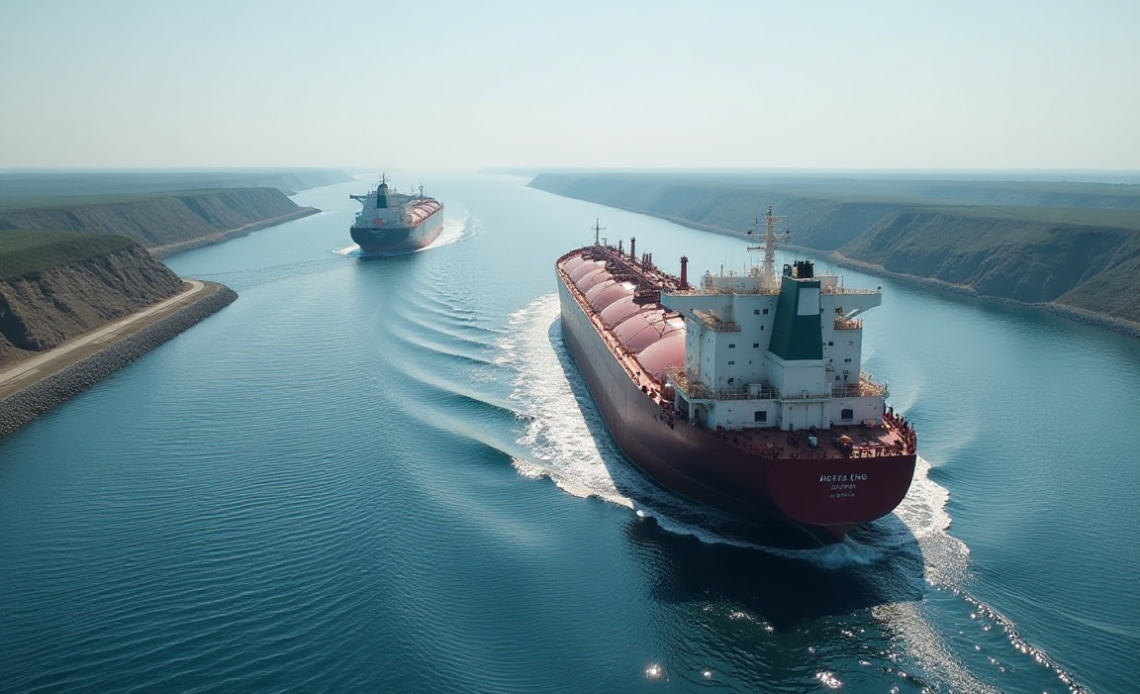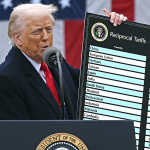
Following US military strikes on Iran, at least two supertankers executed U-turns at the Strait of Hormuz.
Shiptracking data reveals that over a week of regional violence has led vessels to speed up, pause, or change their routes, according to a Reuters report.
Fears have escalated that Iran may retaliate for Washington’s decision to join Israel’s attacks by closing the strait between Iran and Oman.
This waterway is crucial, as approximately 20% of global oil and gas demand flows through it.
This has led to predictions of oil prices reaching $100 per barrel.
“Under a successful blockade, we would expect to see Brent trade up to $120/bbl in the short term,” Warren Patterson, head of commodities strategy at ING Group, said in a note.
A prolonged outage (until the end of 2025) would likely see prices trading above $150/bbl to new record highs.
Cutting down on time
Industry sources indicated to Reuters that tankers are already minimising their time in the strait, a clear sign of ongoing disruption.
Sentosa Shipbrokers, based in Singapore, reported a decline in tanker traffic in the Gulf over the past week.
Compared to early May levels, empty tanker entries decreased by 32%, and loaded tanker departures fell by 27%.
The very large crude carrier (VLCC) Coswisdom Lake entered the strait on Sunday, subsequently reversing course and heading south, according to data from Kpler and LSEG.
On Monday, it resumed its original trajectory towards the port of Zirku in the United Arab Emirates.
LSEG data indicated that the VLCC, South Loyalty, executed a comparable U-turn, opting to stay outside the strait as of Monday.
Kpler data and two shipping sources quoted in the report confirmed its schedule to load crude from Iraq’s Basra terminal.
Unipec, the trading arm of China’s state-run Sinopec, chartered the Coswisdom Lake.
This vessel was scheduled to load crude oil at Zirku for delivery to China, LSEG and Kpler data revealed.
Warnings and shipping delays
KY Lin, a spokesperson for Taiwan’s Formosa Petrochemical Corp., stated on Monday that “Vessels will only enter the region when it is nearer to their loading time,” as shipowners aim to reduce the time vessels spend within the Strait of Hormuz due to the ongoing conflict.
On Monday, Japanese shipping companies Nippon Yusen and Mitsui O.S.K. Lines announced that their vessels would continue transiting the strait but with instructions to minimise time spent in the Gulf.
Oil traders and analysts informed that they had received warnings about potential shipping delays, as vessels might experience waiting periods outside the designated area.
On Sunday, Iran’s Press TV reported that the Iranian parliament approved a measure to close the strait.
However, this action would still need to be approved by the Supreme National Security Council.
In the past, Iran has issued threats to close the Strait, but these threats have never been acted upon.
However, according to Commerzbank AG, shutting down the Strait of Hormuz would also harm Iran, as it exports all its oil to China through the route. Additionally, this could also offend China.
The post Shipping disruption in Gulf: tankers reduce transit time amid regional tensions appeared first on Invezz






